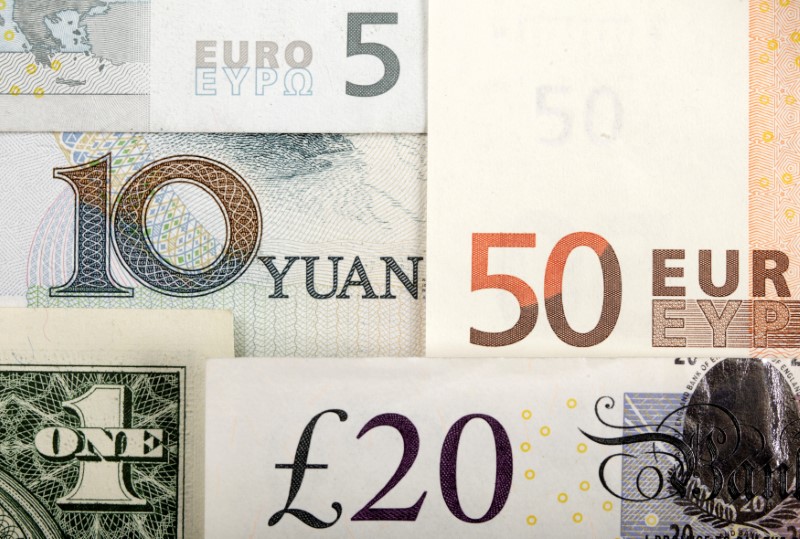By Gertrude Chavez-Dreyfuss
NEW YORK (Reuters) - The euro slid to a one-week low against the dollar on Monday on concerns over French politics ahead of the presidential vote in April as well as other impending elections in Europe in a year of political uncertainty.
"Political risk is serving to dampen the euro after last week's stumble from the $1.08 area," said Shaun Osborne, chief FX strategist, at Scotiabank in Toronto.
German factory orders rose 5.2 percent in December, the biggest monthly increase in 2-1/2 years, but the data hardly mattered.
Investors were largely focused on French politics, as far-right National Front leader Marine Le Pen launched her presidential bid, vowing to fight globalization and take France out of the euro zone.
The yield spread between French and German 10-year yields, as a result, rose to their highest since late 2012, "reflecting the increasing risk that ... Le Pen poses to the European political establishment," said Andres Bergero, director of foreign exchange trading at Bank of the West in San Ramon, California.
Bergero added that Italian-German yield spreads have widened as well, as election season in Europe gets underway, which could indicate more volatility in the currency market.
Dutch elections are in March, French in April and German in September. In Italy, another presidential election looms, even as former Italian prime minister Matteo Renzi said he was willing to shelve his push for early voting.
In late trading, the euro fell 0.4 percent against the dollar to $1.0742
The dollar, however, slid to two-month lows against the yen amid a drop in U.S. Treasury yields. The spread between U.S. two-year and Japanese two-year debt yields contracted to around 136 basis points on Monday, the narrowest in two months, a positive for the yen.
The dollar was last down 0.7 percent at 111.81 yen
Robust equity markets and the strength of U.S. economic data, meanwhile, continue to back last year's bullish U.S. dollar calls, analysts said.
But a lack of details on expected pro-dollar tax-and-spending initiatives by President Donald Trump's new administration and concerns over the White House's attitude on the dollar and global trade have kept the currency under pressure, for now.
Sireen Harajli, FX strategist at Mizuho in New York, said she expects further dollar softness "until we see more concrete progress on the budget, tax cuts and infrastructure spending" from the U.S. government.
